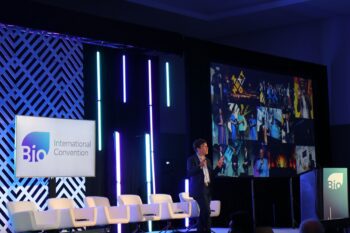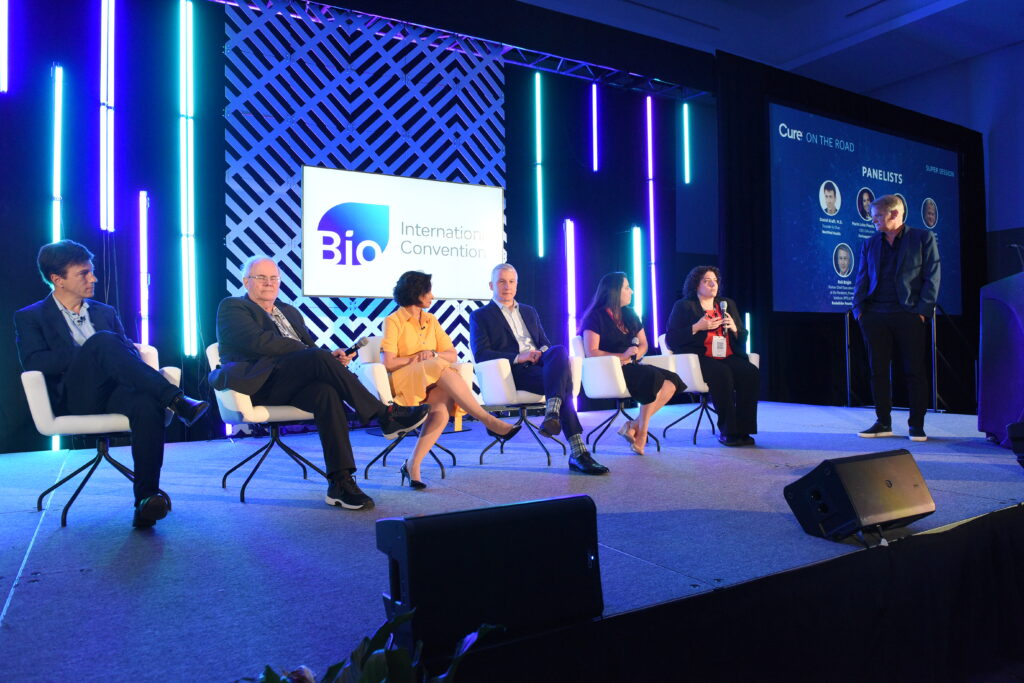A $1 million project to find groundbreaking treatments for critical illnesses using Artificial Intelligence (AI) has been announced at the 2023 Biotechnology Innovation Organization (BIO) International Convention in Boston.
Seema Kumar, CEO of Cure, a laboratory, engineering, and business facility based in New York City, unveiled plans to bring the world of technology closer together with the healthcare industry.
She told the convention that AI has the potential to revolutionize the future of health.
The program is called CureXchange and will see yearly teams of experts coming together to find innovative ideas.
“We will bring the power of AI and its ability to do good in healthcare and mitigate risks. AI has the the potential to revolutionize healthcare in many positive and impactful ways. The future is very bright for AI and its applications to improve human health,” she said.
“We are using AI to accelerate drug discovery and development, speed up manufacturing, and use big data to predict illnesses before they happen.”
The program will accept submissions on how to harness artificial intelligence. Teams with successful submissions will win financial backing and a one-year residency at the Cure campus, which includes access to its network, ecosystem, mentorship, and resources.
BIO International Convention talks AI for good
Kumar was speaking at a super session panel at the convention, which discussed how to leverage AI to find solutions for healthcare challenges, such as predicting Alzheimer’s disease, curing cancer, and being able to predict potential pandemics.
 The session saw physician-scientist and innovator Daniel Kraft, M.D., founder of NextMed Health and Digital.Health, explain current and future health technologies including the creation of a physiological computer profile of a person—called a “digital twin”—that can use monitoring and testing to predict your future health in the hope of mitigating or preventing disease.
The session saw physician-scientist and innovator Daniel Kraft, M.D., founder of NextMed Health and Digital.Health, explain current and future health technologies including the creation of a physiological computer profile of a person—called a “digital twin”—that can use monitoring and testing to predict your future health in the hope of mitigating or preventing disease.
The panel also included Rick A. Bright, Ph.D., former Chief Executive Officer of the Pandemic Prevention Institute at the Rockefeller Foundation and former Director of the Biomedical Advanced Research and Development Authority (BARDA); Gregory Petsko, D. Phil, Professor of Neurology Ann Romney Center for Neurologic Diseases Department of Neurology Brigham & Women’s Hospital Harvard Medical School; and Maria Luisa Pineda, Ph.D., Co-Founder and CEO of Envisagenics, Inc.
The experts showcased their “here and now” examples of how AI is already implemented, including how it can reduce drug costs, speed up drug discovery, and how it can integrate new technology like cell and gene therapy.




